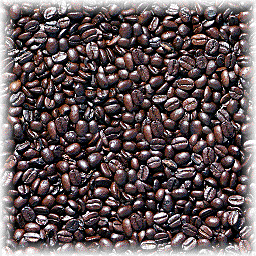A new health drink?
Well, it's not new really. What is new is how health researchers see coffee. Recent studies praise a cup of java for its many beneficial health effects, according to the NYT article "Coffee as a Health Drink? Studies Find Some Benefits."
Take a landmark study in JAMA last year which claimed habitual coffee drinking is associated with reduced risk of developing Type 2 Diabetes.
Coffee contains antioxidants that help control the cell damage that can contribute to the development of the disease. It is also a source of chlorogenic acid, which has been shown in animal experiments to reduce glucose concentrations.
Caffeine, perhaps coffee’s most famous component, seems to have little to do with it; studies that looked at decaffeinated coffee alone found the same degree of risk reduction.
Larger quantities of coffee seem to be especially helpful in diabetes prevention. In a report that combined statistical data from many studies, researchers found that people who drank four to six cups of coffee a day had a 28 percent reduced risk compared with people who drank two or fewer. Those who drank more than six had a 35 percent risk reduction.
Another study finds an association between coffee consumption and reduced cardiovascular disease.
The findings, which appeared in May in The American Journal of Clinical Nutrition, suggest that antioxidants in coffee may dampen inflammation, reducing the risk of disorders related to it, like cardiovascular disease. Several compounds in coffee may contribute to its antioxidant capacity, including phenols, volatile aroma compounds and oxazoles that are efficiently absorbed.
 In another analysis, published in July in the same journal, researchers found that a typical serving of coffee contains more antioxidants than typical servings of grape juice, blueberries, raspberries and oranges.
In another analysis, published in July in the same journal, researchers found that a typical serving of coffee contains more antioxidants than typical servings of grape juice, blueberries, raspberries and oranges.“We were surprised to learn that coffee quantitatively is the major contributor of antioxidants in the diet both in Norway and in the U.S.A.,” said Rune Blomhoff, the senior author of both studies and a professor of nutrition at the University of Oslo.
These same anti-inflammatory properties may explain why coffee appears to decrease the risk of alcohol-related cirrhosis and liver cancer. This effect was first observed in 1992. Recent studies, published in June in The Archives of Internal Medicine, confirmed the finding.
Of course, drinking coffee isn't all good. A prevailing belief is that caffeine decreases bloodflow (and thus oxygen delivery) to the heart via coronary artery vasoconstriction, and can elevate blood pressure too by vasoconstricting other arteries in the body.
There are many studies (1, 2, 3) , in these same journals, that point to the detrimental effects of coffee. And who can overlook the toll coffee takes on one's teeth?

1 Comments:
Yet another study that confirms that coffee is protective against Type 2 diabetes, and that it is something other than caffeine in the coffee that is doing the trick.
Smith and her colleagues investigated 910 men and women, all of whom were 50 or older and free of diabetes when the study began.
When the subjects were followed-up about 8 years later, the former and current coffee drinkers were about 60 percent less likely to have developed type 2 diabetes.
The protective effects were still seen after the researchers adjusted the data for variations in physical activity, weight, blood pressure, smoking and sex among the subjects.
Coffee's protective effect was seen even among people who had impaired glucose tolerance, an early warning sign of diabetes, at the beginning of the study.
The researchers were unable to determine how much coffee people needed to drink to produce the protective effect. But study participants were generally not heavy coffee drinkers, Smith said.
From: http://news.yahoo.com/s/nm/20061101/hl_nm/coffee_diabetes_dc
Post a Comment
<< Home